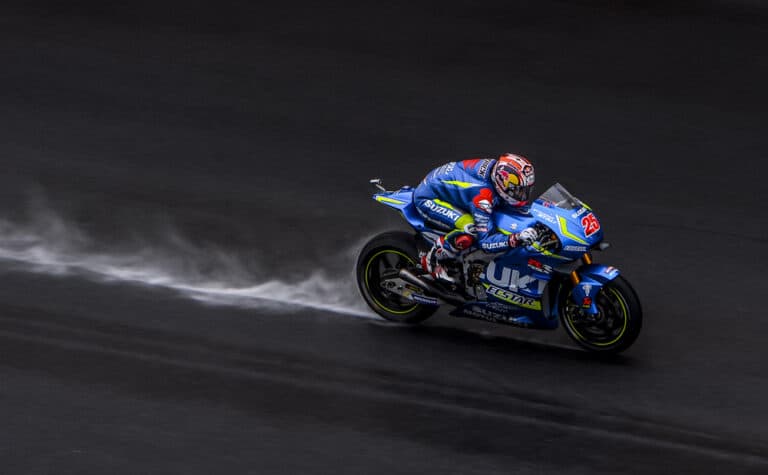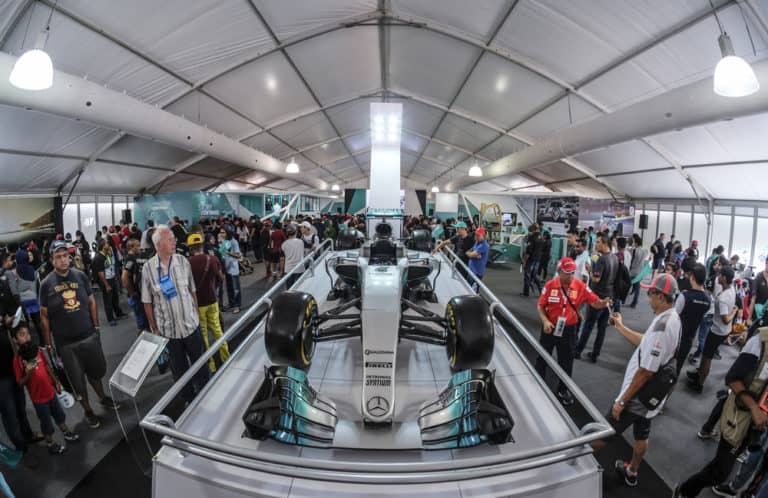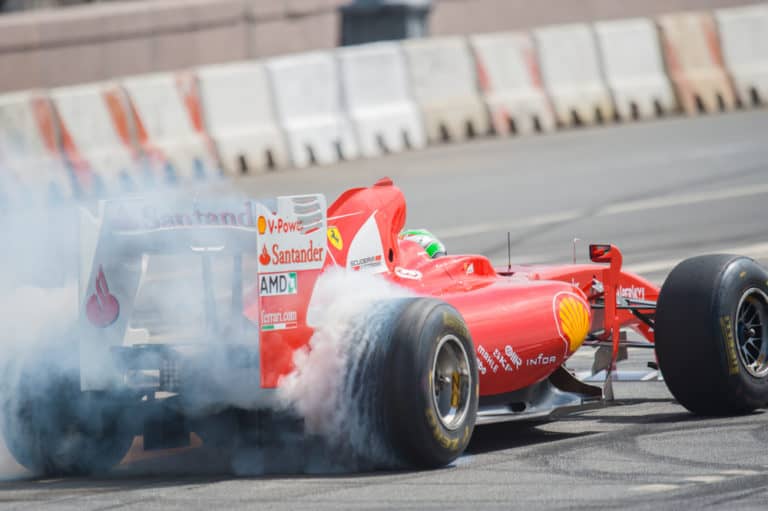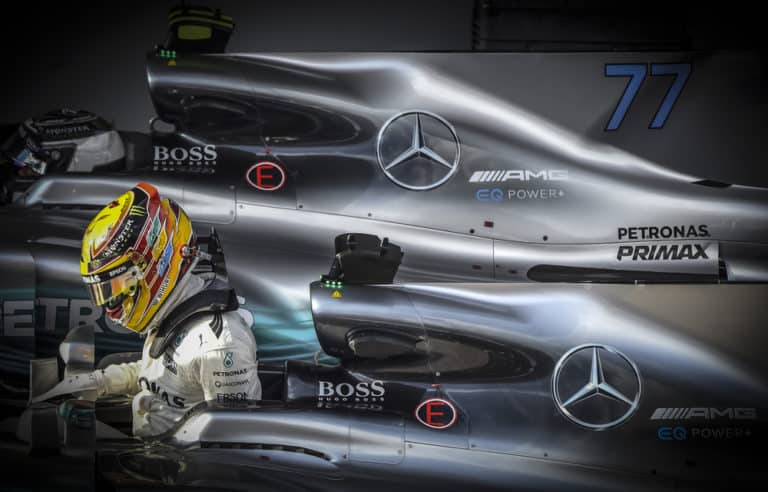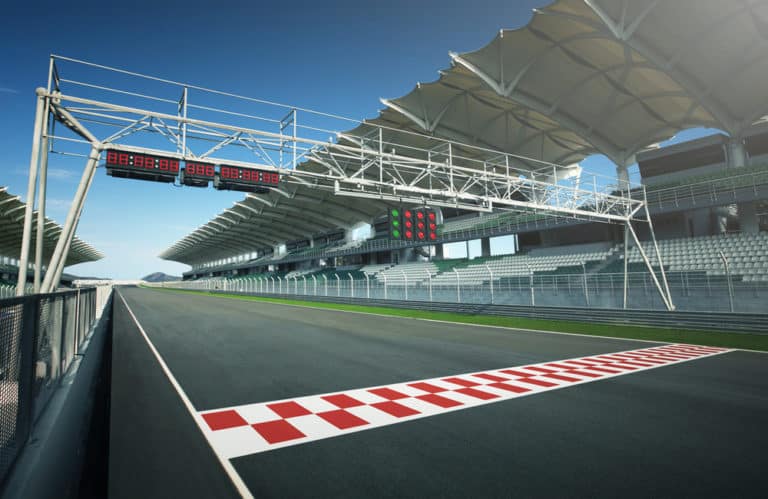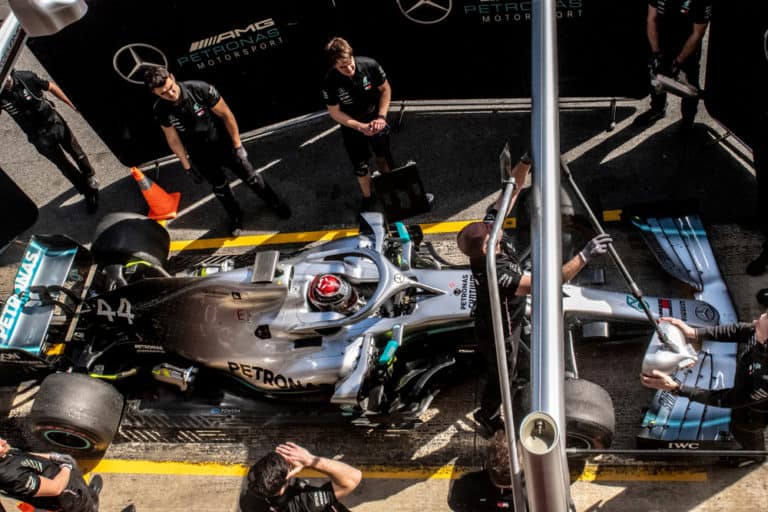Formula 1 is one of the most international sports in the world. Since its creation in 1950, it has been growing in popularity and has spread throughout the world, establishing itself as one of the most followed sports.
Since the first world championship, 767 drivers from 40 countries have raced in Formula 1, there have been teams from 26 countries, and races have been held in 33 countries.
Despite all the drivers who have been in F1, only a few achieve victories and podiums, the best of the best, and even fewer manage to win a world title. Of the 767 drivers who have participated in F1, there have only been 33 world champions from 14 different countries, a very small number.
If we asked you about the best drivers, you would surely respond quickly, but have you ever wondered which are the best nations in F1? If so, keep reading!
If you’re looking for some F1 merchandise, check out the awesome stuff at the official F1 store here.
1. United Kingdom
20 World Drivers’ Championships
306 Wins
717 Podiums
289 Pole Positions
The United Kingdom is by far the best nation in F1 history with 20 World Drivers’ Championships, 306 victories, 717 podiums, and 289 pole positions. You won’t be surprised if we look back at the early days of F1, as the championship was conceived in the UK, specifically at the Silverstone circuit. Since then, the history of F1 has been largely dominated by the British.
There have been 164 British drivers in F1, of which 10 have become world champions. Surely, many come to mind if you think of British drivers, such as Lewis Hamilton, Nigel Mansell, Jackie Stewart, or James Hunt.
And it is that the British have been massively involved in F1 from the start, and there has never been a season without a British team, a British driver, or a British Grand Prix. The most famous and successful British team is McLaren, which has been around since 1966, being the second team with the most races, behind Ferrari, and with a total of 8 constructors’ and 12 drivers’ titles.
The UK remains the most influential country in the sport as there are currently 3 British teams and 3 British drivers on the grid. It is the spiritual home of F1 and its physical home, as most teams have their facilities and research centers in Great Britain.
2. Germany
12 World Drivers’ Championships
179 Wins
415 Podiums
166 Pole Positions
Germany is the second-best nation in F1. If Great Britain has dominated the history of F1, the car’s history has been dominated by Germany. Since the invention of the first vehicle in 1886 by Karl Benz, the massive automotive industry, Germany has developed a massive car industry, automotive history, and high-car performance culture.
We can observe this great automotive tradition through the great German car brands, such as Audi, Porsche, or BMW, but without a doubt, the most important German brand in F1 has been Mercedes.
Mercedes as a team has not been around as long as we think. Mercedes raced in 1954 and 1955 and returned in 2010, with dominating stages in both periods. However, it has been present as an engine supplier for numerous teams, such as McLaren, who have been world champions.
Germany has had some of the best in history in terms of drivers. There have been 52 German drivers in F1, the most successful being Michael Schumacher, with 7 world titles, followed by Sebastian Vettel with 4, and Nico Rosberg with 1.
There were no German champions until Michael Schumacher, but they have been one of the most dominating nations in F1, especially with “The Kaiser” and Sebastian Vettel.
3. Brazil
8 World Drivers’ Championships
101 Wins
293 Podiums
126 Pole Positions
Although it may not seem like it at first glance, Brazil has the strongest connection to F1 of any country outside of Europe and has produced some of the best drivers in history. Since 1972 there has always been a Brazilian GP until now, except for 2020 due to the Covid-19 pandemic.
Motorsports are not very accessible in Brazil, but considering it is one of the most populated countries globally, some have to reach by statistics. The great Brazilian plus is truly passionate about sports, so when a Brazilian comes to F1, practically the whole country turns to him.
There have been 32 Brazilian F1 drivers, including three world champions. The first Brazilian winner was Emerson Fittipaldi in 1970, who won the title in 1972 and 1974. Nelson Piquet followed him, triple world champion in 1981, 1983, and 1987, and the best known of all, Ayrton Senna, triple world champion in 1988, 1990, and 1991.
Ayrton Senna is elevated to the position of a demi-god in F1, as with his 41 victories and 3 world titles, he was one of the fastest and most complete drivers ever seen, especially in the rain. His fatal crash at the 1994 San Marino GP shocked the entire F1, especially Brazil, where a state funeral was held, and millions of Brazilians mourned his death.
4. Argentina
5 World Drivers’ Championships
38 Wins
98 Podiums
38 Pole Positions
Argentina is one of the countries that has gone from more to less in F1, as its presence has faded considerably over the decades. There have been 25 Argentine drivers in F1, although most have not had a great role, participating only in a couple of races.
The best Argentine driver in history, and one of the best, was Juan Manuel Fangio, 5 times world champion during the first 8 seasons of F1. Fangio achieved 24 victories and 35 podiums, and, as one of the first generation drivers, he was an example to be followed by most of the later drivers.
The other most prominent Argentines in F1 have been José Froilán González, with 2 wins and 15 podiums between 1950 and 1960, and Carlos Reutemann, with 12 wins and 45 podiums between 1972 and 1982.
Since 2001 there has been no Argentine in F1, the last being Gastón Mazzacane, who raced in 2000 with Minardi and in 2001 the first four races with Prost.
5. France
4 World Drivers’ Championships
81 Wins
308 Podiums
79 Pole Positions
France has historically been one of the best nations in F1, and 28 years after its last world championship, it is still looking for a promise that will continue the legacy left by its drivers of the last century.
There have been 75 French drivers in F1, one of the highest figures and the most outstanding, and the one who has won all the world championships for France has been Alain Prost, world champion in 1985, 1986, 1989, and 1993. Alain Prost forged one of the toughest and most iconic rivalries in F1 history with Ayrton Senna, in which there were many tense moments as they fought for the championship year after year.
14 French have achieved F1 victories, including René Arnoux with 7 races and 22 podiums, Jacques Laffite with 6 wins and 32 podiums, and Didier Pironi with 3 wins and 13 podiums.
France has always been very present in F1, with Renault as its main sponsor, either as a team or an engine supplier, and a French GP has always been held except between 2008 and 2017.
Since the 1990s, no Frenchman has stood out in F1, but that seems to have changed with today’s young promising French drivers, Pierre Gasly and Esteban Ocon, who already know what it’s like to win an F1 race.
6. Finland
4 World Drivers’ Championships
57 Wins
244 Podiums
70 Pole Positions
Finland is quite a particular case. The Scandinavian country is one of the most successful in F1, known for its cold and talented drivers, but just looking at the statistics, you wouldn’t believe that there have only been 9 Finnish drivers in F1, of which 3 have been world champions.
And it is that Finn drivers seem to lose less than any other country in F1. The 3 Finnish F1 champions have been Keke Rosberg in 1982, Mika Häkkinen in 1998 and 1999 and Kimi Räikkönen in 2007. The other race winners have been Heikki Kovalainen and Valtteri Bottas. Finnish drivers have the highest success rate of all countries.
But what is the secret of Finnish drivers? Well, there is no concrete answer.
Finns have a word for this national characteristic, Sisu, which cannot be fully translated but describes “strength of will, determination, perseverance, and acting rationally in the face of adversity. Sisu is not momentary courage but the ability to sustain that courage. Defines the Finnish people and their character. It stands for the philosophy that what must be done will be done, regardless of cost.”
Kimi Räikkönen once said about Finland’s great success in F1:
“The roads and long winters, you have to be a good driver to survive in Finland. It is always slippery and bumpy.”
And it is that winter in Finland is not a joke. Ice and snow cover most roads, and it takes a lot of skill not to end up with a wrecked car.
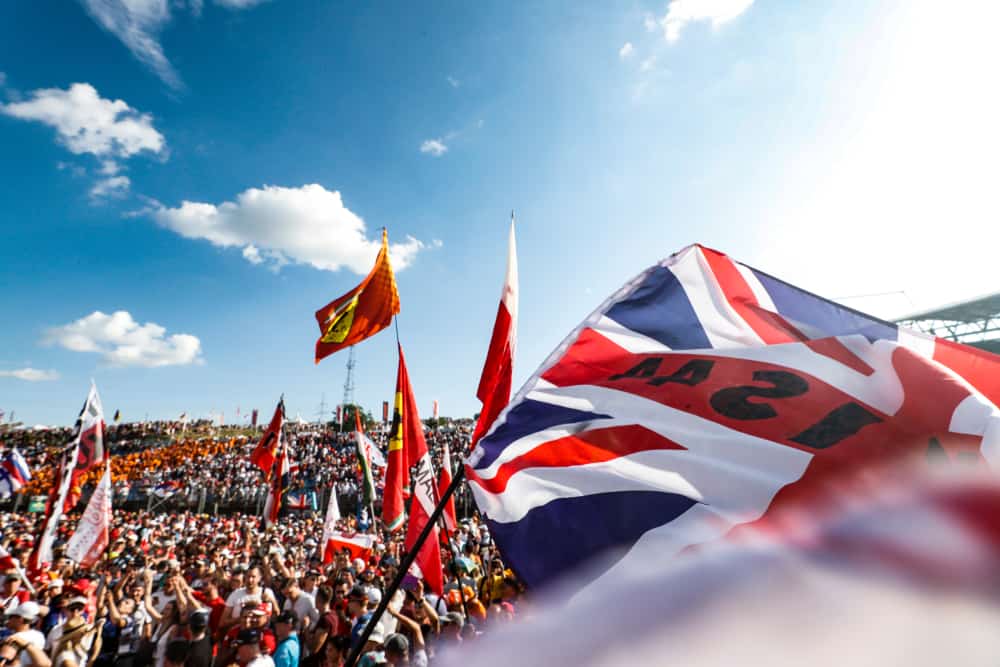
7. Australia
4 World Drivers’ Championships
43 Wins
130 Podiums
35 Pole Positions
Australia has had 17 F1 drivers, 14 of whom have participated in at least one race since the championship began in 1950, and 3 did not qualify. Two of these 17 have been world champions: Jack Brabham in 1959, 1960, 1966 and Alan Jones in 1980.
Jack Brabham is also the only driver to win the championship in one of his cars, a Brabham in 1966. His team competed between 1961 and 1992 and won 4 drivers’ championships and 2 constructors’ championships and became one of the most iconic teams in F1 and had great drivers such as Graham Hill, Nelson Piquet, or Niki Lauda.
There have also been two other Australian race winners, Mark Webber with 9 wins and 42 podiums between 2002 and 2013, and Daniel Ricciardo, the only current Australian driver on the grid, with 8 wins and 32 podiums. Daniel Ricciardo is one of the most beloved drivers because of his personality, and his latest victory at the 2021 Monza GP marked McLaren’s first victory in 9 years.
8. Austria
4 World Drivers’ Championships
41 Wins
118 Podiums
46 Pole Positions
Austria has one of the brightest but most fatal statistics in F1. There have been 16 Austrian drivers in F1, 3 of whom died while competing; only the UK has lost more drivers’ lives in the sport, but we must bear in mind that they have had ten times as many drivers.
Several other Austrian drivers were seriously injured in the competition, and some had career-ending accidents. Two Austrian drivers have been world champions. Niki Lauda, triple world champion in 1975, 1977, and 1984, is considered one of the best drivers of all time, but his career and his life were also marked by accident.
On August 1, 1976, when he was fighting with James Hunt for the championship, he collided with the barriers at the Nürburgring circuit, and his car burned, for which he almost lost his life and ended up with severe burns all over his body.
He returned to competition a month and a half later at the Monza GP, finishing fourth, and the following year he won the championship, but the aftermath of his accident was always present.
Austria’s other world champion was Jochen Rindt, who won the title in 1970 and is the only posthumous F1 champion, having died in an accident during a practice session for the Italian Grand Prix, with four races remaining.
Gerhard Berger is the only other winning Austrian driver, having achieved 10 victories and 48 podiums between 1984 and 1997. The most recent Austrian driver to compete in F1 has been Christian Klien in 3 races in 2010.
9. Italy
3 World Drivers’ Championships
43 Wins
207 Podiums
48 Pole Positions
Italy has historically been one of the most influential and involved countries in F1. The Italian GP has been held every year since the start of the championship in 1950, and since 1921 races have been held there.
And if we talk about influence, obviously we have to talk about the longest-running and most successful team in F1, Ferrari, the great Italian team. With 1008 races contested, 771 podiums and 238 victories, 15 drivers’ and 16 constructors’ championships, Ferrari is more than a team. It is a national emblem. Ferrari is arguably the most famous car brand globally and of which all Italians are proud.
In terms of drivers, there have been 98 Italian drivers in F1, of which two have been world champions: Giuseppe “Nino” Farina, who was the first-ever F1 world champion in 1950, and Alberto Ascari, who was the first double world champion in 1952 and 1953.
15 Italian drivers have won races, being the last one Giancarlo Fisichella at the 2006 Malaysian GP. Only six Italian drivers have won more than one race, Ascari being the most successful with 13 victories.
Although we see great Italian drivers like Fisichella or Jarno Trulli every few years, the Italian presence has been declining over time. The only Italian driver in F1 is Antonio Giovinazzi, who will not be on the grid in 2022.
10. United States
2 World Drivers’ Championships
33 Wins
129 Podiums
38 Pole Positions
Statistics on the United States are a bit misleading. Officially there have been 233 American drivers in F1, but during the 1950s and 1960s, the Indy 500 was an F1 championship event, so several drivers never participated in another F1 championship race.
Assuming this, there have been 36 drivers from the US who have competed for the championship, of which 19 have contested 10 or more events, so actually, their stats are pretty good.
Two American drivers have been world champions. Phil Hill in 1968 and Mario Andretti, the most successful one, in 1978. Andretti was born in Italy but became a US citizen in 1964, and because he spent most of his career in the US, he continued racing as an American.
Andretti is the last American driver to win a race in Formula 1 at the 1978 Dutch GP. There have been 15 American race winners, with five having won more than one race: Phil Hill (3), Mario Andretti (12). Dan Gurney (4), Peter Revson (2) and Bill Vukovich (2).
Alexander Rossi was the last American driver to drive in F1, with five participations in 2015. Since Andretti, there has not been a driver from the US who has stood out too much.
The United States has a particular relationship with F1. You can read more about it in this article.
11. Spain
2 World Drivers’ Championships
32 Wins
105 Podiums
22 Pole Positions
Spain has had 15 F1 drivers, but it would not be in this position without Fernando Alonso, double world champion in 2005 and 2006, and the only Spanish race and championship winner.
And if we look at the statistics, Fernando Alonso, with 32 victories, 98 podiums, and 22 poles, has achieved almost all the Spanish achievements so far. The rest of the podiums are divided between Alfonso de Portago and Pedro de la Rosa with one each and Carlos Sainz Jr with five.
Although popularly, there has never been a great F1 tradition in Spain, the Spanish GP is one of the oldest holding races since 1913. Since the first F1 season, 53 Grands Prix have been held between Jarama, Montjuic, Jerez, and Catalunya.
The achievements of Fernando Alonso were a huge increase in the popularity of F1 in Spain, and many of the current Spanish fans are thanks to Alonso. Although fortunately there is still Alonso for a while, Carlos Sainz Jr is the main candidate to continue his legacy
Also noteworthy is the Spanish Hispania Racing Team (HRT) that competed from 2010 to 2012, although with more pain than glory.
12. Canada
1 World Drivers’ Championships
17 Wins
39 Podiums
16 Pole Positions
Something similar to Spain happens to Canada. There have been 15 Canadian drivers in F1, but only four have scored, only 3 have achieved podiums, and only two have stood out.
The most successful Canadian drivers have been Gilles Villeneuve and his son Jacques. Gilles is considered one of the best drivers of all time, and between 19779 and 1982, he achieved 6 victories, 13 podiums, and was runner-up in 1979. Unfortunately, he was killed in an accident in 1982 during qualifying for the Belgian GP. He could have accomplished much more in F1 and became an idol and icon for generations to come.
Jacques competed in F1 from 1996 to 2006 and was champion in his second season, in 1997. He achieved 11 victories and 23 podiums throughout his career and continued the legacy that his father started.
Since the retirement of Jacques, there have been no Canadian drivers until the arrival in 2017 of Lance Stroll, who has achieved 3 podiums in the category. Nicholas Latifi is the other Canadian on the grid, and along with Stroll, Gilles, and Jacques, they are the four Canadian drivers who have scored in F1.
As for the Canadian GP, it has been held from 1961 to 2019 with only three interruptions, being one of the countries that have hosted the most GP. In 2020 and 2021, it has not been possible to celebrate due to problems derived from the Covid-19 pandemic.
Conclusion
Many legends from different times, backgrounds, and countries have competed to be the best and represent their countries. The prestige of winning a race or a championship not only means that your name will go down in history but so will your country.
Sources
- List of Formula One World Drivers’ Champions – Wikipedia
- List of Formula One Grand Prix winners – Wikipedia
- Which are the Top Nations in Formula 1? – F1 Bytes
- Why These 4 Countries Produce the Most F1 Champs – YouTube
- Formula One drivers from Argentina – Wikipedia
- Formula One drivers from France – Wikipedia
- Formula 1: How did tiny Finland become an F1 giant? – BBC Sport
- Formula One drivers from Australia – Wikipedia
- Niki Lauda, 45 años del accidente que lo cambió todo: cómo rehízo su vida (msn.com)
- Scuderia Ferrari – Wikipedia, la enciclopedia libre
- Formula One drivers from the United States – Wikipedia

